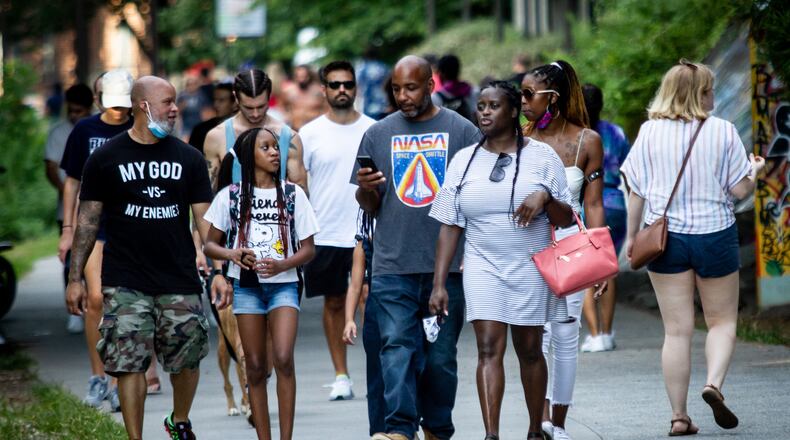Businesses and apartment complexes located within a half-mile of the Atlanta Beltline will have to pay an added tax on their bills this year.
The Atlanta City Council voted on Monday to pass the additional property tax, which Beltline officials say is critical to fund the completion of the trail by 2030.
“The Atlanta Beltline has offered tremendous benefits for businesses and property owners along its completed trails,” Mayor Keisha Lance Bottoms said in a statement after the vote, adding that the measure “will help give communities throughout the city the opportunity to enjoy the benefits associated the closing of the loop.”
Several local business groups were opposed to the added tax, saying it was rushed through the City Council and will unfairly impact small businesses.
Here’s what the Beltline’s new “Special Service District” entails, and why some take issue with it:
How much is the tax increase, and who will it impact?
The tax hike applies to commercial and multifamily property owners located in the Atlanta Beltline Planning Area, a zone that includes the Beltline Tax Allocation District and properties within a half-mile on either side of the trail, including areas that aren’t yet paved. Owner-occupied homes, condos or townhomes would not be subject to the tax hike.
A property appraised at $1 million would pay an additional $800 per year, according to Beltline documents outlining the plan. The increase could be in place for 15 to 20 years.
The Special Service District will impact 3,555 properties — 2,945 commercial and industrial parcels and 610 apartment buildings.
When will it take effect?
Property owners will pay the increased rate on their tax bills that are due this fall.
Why is it being implemented?
The Beltline needs more cash to reach its goal of finishing the full trail by 2030. The Beltline already has a Tax Allocation District that brings in funding, but it is not expected to create as much revenue as initially expected. Beltline leaders say the tax increase could bring in $100 million in additional tax revenue over the next 10 years, which could allow the Beltline to finish paving the full, 22-mile loop by 2029.
It could also free up an additional $45 million for affordable housing, create 20,000 additional jobs and allocate $12 million toward support for small businesses, Beltline officials said.
What’s fueling the opposition to it?
Some local business groups have spoken up against the plan in recent weeks, arguing it will negatively affect small businesses. Lauren Welsh, the executive director of the Little Five Points Community Improvement District, said the neighborhood’s businesses get little traffic from the Beltline. While the tax increase may seem small, Welsh said, it only adds an additional burden for businesses that have struggled in the last year.
“It’s hard to watch this being done,” she said.
Some critics also worry the tax will cause apartment owners to increase rents, though the Beltline said any hike passed through to renters would be minimal.
About the Author
The Latest
Featured



